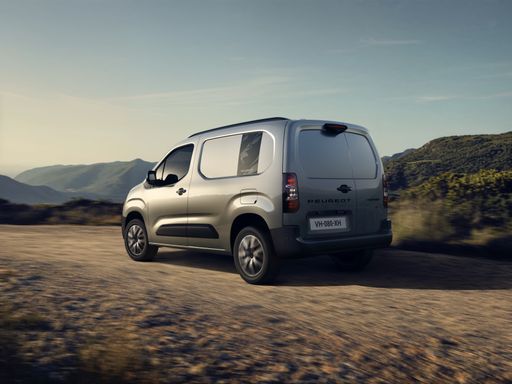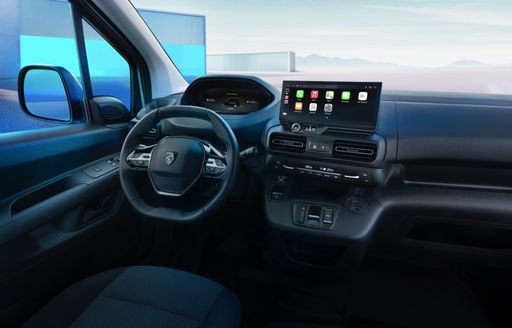Mercedes Vito Transporter vs Peugeot Partner - Differences and prices compared
Compare performance (237 HP vs 136 HP), boot space and price (28800 £ vs 22400 £ ) at a glance. Find out which car is the better choice for you – Mercedes Vito Transporter or Peugeot Partner?
Costs and Efficiency:
When it comes to price and running costs, the biggest differences usually appear. This is often where you see which car fits your budget better in the long run.
Peugeot Partner has a evident advantage in terms of price – it starts at 22400 £ , while the Mercedes Vito Transporter costs 28800 £ . That’s a price difference of around 6393 £.
Fuel consumption also shows a difference: Peugeot Partner manages with 5.20 L and is therefore distinct more efficient than the Mercedes Vito Transporter with 6.80 L. The difference is about 1.60 L per 100 km.
In terms of energy consumption, the advantage goes to the Peugeot Partner: with 17.40 kWh per 100 km, it’s distinct more efficient than the Mercedes Vito Transporter with 21.20 kWh. That’s a difference of about 3.80 kWh.
As for electric range, the Mercedes Vito Transporter performs distinct better – achieving up to 474 km, about 120 km more than the Peugeot Partner.
Engine and Performance:
Under the bonnet, it becomes clear which model is tuned for sportiness and which one takes the lead when you hit the accelerator.
When it comes to engine power, the Mercedes Vito Transporter has a decisively edge – offering 237 HP compared to 136 HP. That’s roughly 101 HP more horsepower.
In terms of top speed, the Peugeot Partner performs noticeable better – reaching 183 km/h, while the Mercedes Vito Transporter tops out at 140 km/h. The difference is around 43 km/h.
There’s also a difference in torque: Mercedes Vito Transporter pulls clearly perceptible stronger with 500 Nm compared to 300 Nm. That’s about 200 Nm difference.
Space and Everyday Use:
Beyond pure performance, interior space and usability matter most in daily life. This is where you see which car is more practical and versatile.
Both vehicles offer seating for 5 people.
In curb weight, Peugeot Partner is significantly lighter – 1329 kg compared to 1916 kg. The difference is around 587 kg.
In maximum load capacity, the Mercedes Vito Transporter performs evident better – up to 6600 L, which is about 2600 L more than the Peugeot Partner.
When it comes to payload, Peugeot Partner to a small extent takes the win – 991 kg compared to 884 kg. That’s a difference of about 107 kg.
Who wins the race in the data check?
The Mercedes Vito Transporter sits well ahead of its rival in the objective data comparison.
This result only shows which model scores more points on paper – not which of the two cars feels right for you.
Costs and Consumption
View detailed analysis
Engine and Performance
View detailed analysis
Dimensions and Body
View detailed analysis

Mercedes Vito Transporter
Mercedes Vito Transporter
The Mercedes Vito Transporter is a supremely practical workhorse that blends Mercedes refinement with van-like utility, making long days on the road feel surprisingly civilized. With a cleverly thought-out interior and a drive that won’t wear you out, the Vito is the ideal choice for businesses that want capability without sacrificing comfort — and yes, it still looks sharper than most vans at a client meeting.
details
Peugeot Partner
The Peugeot Partner is a no-nonsense workhorse that doubles as a surprisingly comfy family mover, combining clever storage solutions with an easy-to-live-in cabin. It won’t win any beauty contests, but for small businesses and active families it’s practical, economical and utterly reliable when the day gets busy.
details


Costs and Consumption |
|
|---|---|
|
Price
28800 - 51600 £
|
Price
22400 - 33800 £
|
|
Consumption L/100km
6.8 - 9.7 L
|
Consumption L/100km
5.2 - 6.3 L
|
|
Consumption kWh/100km
21.2 - 26.5 kWh
|
Consumption kWh/100km
17.40 kWh
|
|
Electric Range
304 - 474 km
|
Electric Range
354 km
|
|
Battery Capacity
60 - 90 kWh
|
Battery Capacity
-
|
|
co2
0 - 222 g/km
|
co2
0 - 143 g/km
|
|
Fuel tank capacity
57 - 70 L
|
Fuel tank capacity
53 - 61 L
|
Dimensions and Body |
|
|---|---|
|
Body Type
Cargo Van
|
Body Type
Cargo Van
|
|
Seats
2 - 5
|
Seats
2 - 5
|
|
Doors
4
|
Doors
4 - 5
|
|
Curb weight
1916 - 2518 kg
|
Curb weight
1329 - 1813 kg
|
|
Trunk capacity
-
|
Trunk capacity
1800 L
|
|
Length
4895 - 5390 mm
|
Length
4403 - 4753 mm
|
|
Width
1928 mm
|
Width
1848 mm
|
|
Height
1910 - 1945 mm
|
Height
1796 - 1812 mm
|
|
Max trunk capacity
3100 - 6600 L
|
Max trunk capacity
3300 - 4000 L
|
|
Payload
547 - 884 kg
|
Payload
611 - 991 kg
|
Engine and Performance |
|
|---|---|
|
Engine Type
Diesel, Electric, Petrol
|
Engine Type
Electric, Diesel, Petrol
|
|
Transmission
Manuel, Automatic
|
Transmission
Automatic, Manuel
|
|
Transmission Detail
Manual Gearbox, Reduction Gearbox, Automatic Gearbox
|
Transmission Detail
Reduction Gearbox, Manual Gearbox, Automatic Gearbox
|
|
Drive Type
Rear-Wheel Drive, Front-Wheel Drive, All-Wheel Drive
|
Drive Type
Front-Wheel Drive
|
|
Power HP
102 - 237 HP
|
Power HP
102 - 136 HP
|
|
Acceleration 0-100km/h
-
|
Acceleration 0-100km/h
11.20 s
|
|
Max Speed
120 - 140 km/h
|
Max Speed
135 - 183 km/h
|
|
Torque
270 - 500 Nm
|
Torque
205 - 300 Nm
|
|
Number of Cylinders
4
|
Number of Cylinders
3 - 4
|
|
Power kW
75 - 174 kW
|
Power kW
75 - 100 kW
|
|
Engine capacity
1950 - 1999 cm3
|
Engine capacity
1199 - 1499 cm3
|
General |
|
|---|---|
|
Model Year
2024 - 2025
|
Model Year
2024 - 2025
|
|
CO2 Efficiency Class
G, A
|
CO2 Efficiency Class
A, E
|
|
Brand
Mercedes-Benz
|
Brand
Peugeot
|
What drive types are available for the Mercedes Vito Transporter?
The Mercedes Vito Transporter is available as Rear-Wheel Drive, Front-Wheel Drive or All-Wheel Drive.
